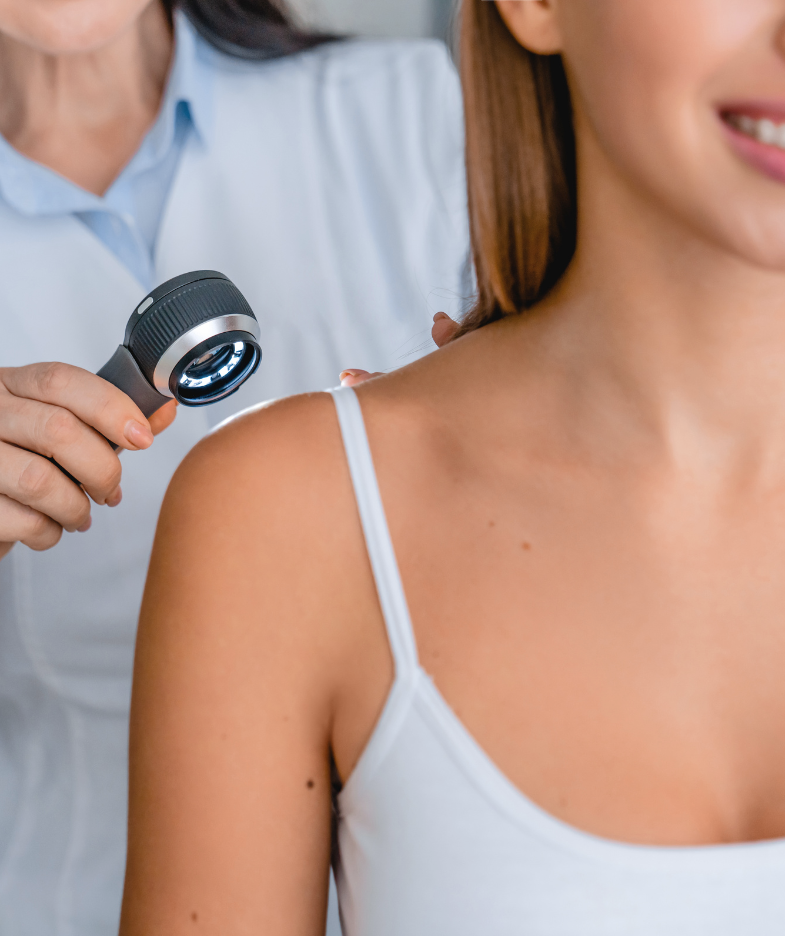- Strona główna
- /
- Dermatological Prevention
Dermatological Prevention
The concept of “prevention” mainly involves actions aimed at preventing diseases, as well as detecting and treating conditions at early stages, providing hope for restoring full health.
In dermatology, preventive actions mainly focus on examining skin lesions, which allows for early detection of worrisome cancerous changes. Malignant melanoma can develop from a pigmented mole that previously existed in a stable state but suddenly started changing (thickening, changes in surface, color and edges, appearance of itching or bleeding), or in unchanged skin. The rapid growth of melanoma, its ability to give early metastases, and its low susceptibility to treatment place it among the most dangerous cancers. A dermatologist is able to detect such a change in the early stages of development, which is why regular visits to a specialist’s office are so important.

Dermatological Prevention – what does it involve?
During the visit, the medical history should include information about newly developed skin changes, noticed abnormalities in existing moles that have been present for years, and information about exposure to factors that increase the risk of skin cancer. The most important element of a skin examination is a thorough inspection of the patient’s entire body. This takes place at every medical visit. If the doctor notices a worrisome change, dermatoscopy or videodermoscopy is used in early diagnosis. The dermatoscopic assessment of skin lesions is mainly based on the clinical suspicion of melanoma when two of the following three criteria are met:
- asymmetric distribution of structures within the lesion
- atypical pigment network
- blue-white veil
Dermatological Prevention – Indications
Practically every person should visit a dermatologist’s office for preventive check-ups from time to time. Individuals who are at particular risk are those who:
- have a family history of melanoma,
- have blonde or red hair and fair skin,
- have numerous moles on the skin,
- take immunosuppressive medications.
Make an appointment online or by phone!
Make an appointment